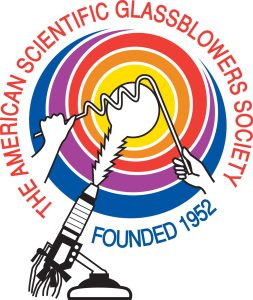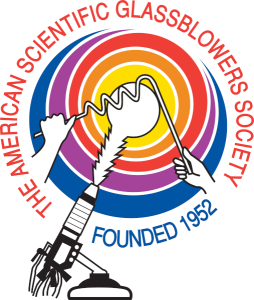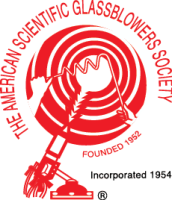2016 Technical Paper Presentations
(Click on the presenter name to see a short bio.) Corina Guerra, Erin Mayberry and Grantt Mayberry -“Tips For Transitioning Between Different Types of Glass” Salem Community College graduates (USA) Gary Coyne- “Asking the Right Questions Lets You Make the Right Vacuum System” California (USA) Michael Meconi – “Continuous Improvement” Philips Healthcare, Aurora, Illinois (USA) Philip Surdam – “Plastic Safety Coating of Laboratory Glassware” ChemGlass LifeSciences, Vineland New Jersery, (USA) Michael Hengler – “Freeboard – The Key to Floating your Seven Foot Glass Boat down the River” Assistant Professor of Glass, University of Montana Western, Dillon, MT, (USA) Joshua Greenfield – “Writing on glass: flame, temperature, and solvent resistance of commercial writing implements” PHD Candidate (USA) This paper will examine the flame, temperature, and solvent resistance of a variety of commercial writing implements on both borosilicate and quartz glass. Each type of writing implement will be tested to determine if marks are adversely affected by different types of flame, various furnace temperatures, and common solvents to determine the suitability for a variety of applications. Both permanent and non-permanent solutions will be discussed. Chris Miller- “Precision Vacuum-formed Nozzle Fabrication” PHD Candidate, University of Wisconsin – Madison, Wisconsin (USA) Precision Nozzles capable of producing jets with diameters from 10-500 micrometers were fabricated for research in molecular beam scattering experiments at the University of Wisconsin-Madison. A borosilicate tube was sleeved over an EDM graphite mandrel, and then formed under negative vacuum pressure resulting in nozzles with superior symmetry and reproducibility. The mandrels tapered from 3.49mm, to a small linear 500um section, and were designed to produce jets approaching laminar flow. In order to achieve jet diameters below 500um, mandrels with slightly shorter tips were inserted into the nozzle and secured before carefully heating, pulling, and shaping the tips to the desired size. This allowed the majority of the nozzle geometry to remain consistent while the tip was manipulated during the finishing process. The mandrels were formed using a standard CNC lathe, and could be shaped to produce any nozzle with an arbitrary, monotonically decreasing geometry. Lee Mulholland – “Overview of the BSSG Exam & Competition Programs” Head of the School of Chemistry’s Glassblowing Workshop, University of Southampton. Highfield, Southampton (UK) This will be an outline of the BSSG examination syllabus & competition program as well as the role that the “Board of Examiners” plays in both. I t will be presented in three parts, starting with the BOE & then moving on to the exam syllabus & competitions. Klaus Paris- “Micro glass processing – hot processing of glass tubes under a microscope” Karlsruhe Institute of Technology (KIT), Institute of Catalysis Research and Technology (IKFT) and Institute of Nanotechnology (INT) (GERMANY)



